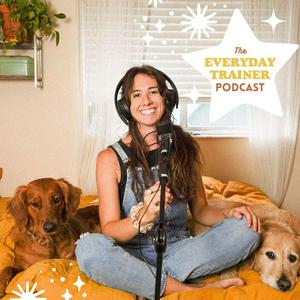The barking, spinning, and “I’m out” crate dives aren’t your dog being difficult—they’re your dog asking for clarity. We dig into how frustration gets mislabeled as shutdown, and how a few simple changes to structure and language can transform a chaotic session into focused, joyful work. From sport dogs to family companions, this is a practical tour of routines, marker words, and walking rules that actually stick.
We start by building a clean communication system: yes to release and pay movement toward you, good to reinforce duration in position, and no as a calm boundary paired with brief leash pressure. You’ll hear how to condition yes so dogs chase you for multiple rewards, why varying payout matters, and how to use good to create a reliable implied stay. Then we zoom out to session flow—potty first, calm thresholds, a clear “Are you ready?” to open the window, and short working blocks with smart resets. It’s a recipe for lowering stress without dimming drive.
Heeling gets a clarity overhaul, too. We separate with me from a formal heel to prevent mixed messages, explain right- vs left-side criteria, and show how to handle a young or hot dog who “leaks” arousal. You’ll get hand-target progressions, perch-to-floor pivots, and leash-pressure releases marked with yes to fix forging and crooked positions. We also cover real-home setups for door greetings and guests—leash for safety, neutral handler energy, timely pops or taps, and rewards for calm engagement—so your dog can process excitement without blowing up.
Whether you’re wrangling a border collie who’s overflowing with energy or tuning up a pet dog who fakes calm, the playbook is the same: clearer cues, tighter windows, and kinder limits. Listen, take notes, and try the drills. If this helped, subscribe, share with a dog friend, and leave a quick review—what cue will you sharpen first?
Visit us on the website here to see what we've got going on and how you can join our pack of good dogs and owners.


